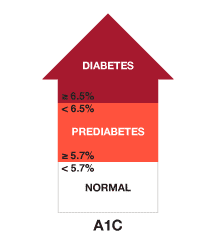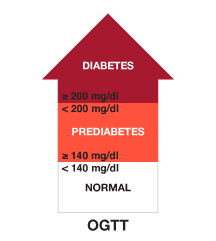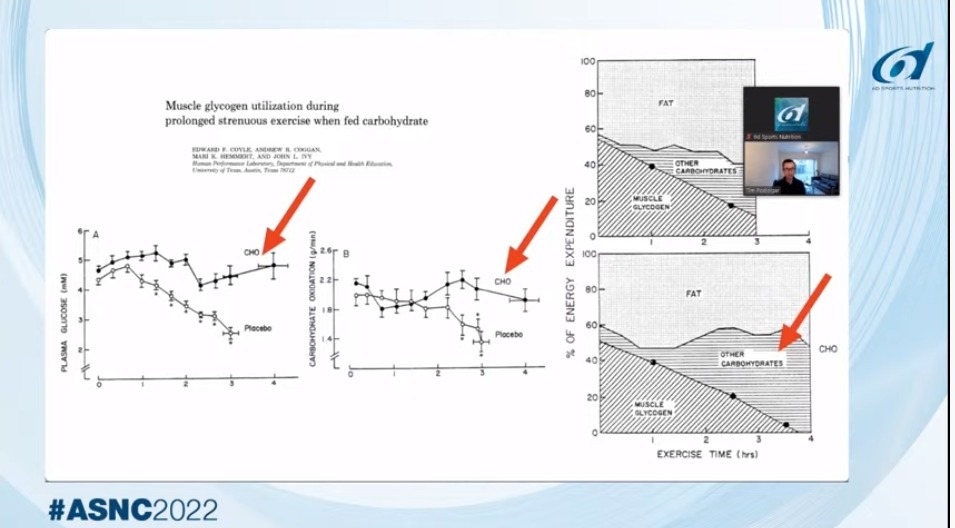Blood Sugar in Health, Energy, and Sports Performance
How blood sugar affects health, energy, and sports performance.
- Carbohydrates increase blood glucose, which increases insulin, and insulin is the key to weight loss. We should keep at minimum levels!
- Carbohydrates are the single most important nutrient for health and weight loss.
- Glucose oxidizes in blood. That’s why many endurance athletes have metabolic syndrome even though they are lean.
- Sweets cravings are a sign of sugar addiction. Avoid all the carbs!
In this article, we will explore the role of blood sugar and it’s impact on health. You will also get practical tips on how to manage your blood sugar, avoid sweet cravings, food coma, and hopefully have a piece of mind.
What is the role of blood sugar?
Our body needs energy to function. It is obtained primarily from sugars – glucose. At every moment, we have a small amount of glucose in our blood, which the body regulates tightly. When our energy demands are low, we have little of it in circulation, when energy demands are increased, such as during exercise, the body releases energy and more glucose enters the bloodstream.
What role does insulin play?
Insulin is a hormone that is produced in the pancreas. When we have glucose in our bloodstream, our body needs to use it or store it. After a meal (with the exception of food that consists only of fats), we will have more glucose in our bloodstream than our body can use at a given moment. If left there for a long time, it would accumulate and cause problems that would lead to death. This is what happens, for example, with type 1 diabetes.
Insulin is like a key that unlocks the door to the cell where glucose is stored or used.
Why are elevated blood sugar levels problematic?
If blood sugar rises above normal levels or stays high longer than normal, it can build up in the blood and damage organs, nerves and blood vessels.

Hemoglobin A1C levels https://diabetes.org/diabetes/a1c/diagnosis

Oral Glucose Tolerance test
Evidence suggests that an OGTT is the most sensitive diagnostic test for prediabetes, and reliance on either fasting glucose or HbA1c alone may result in significant underdiagnosis of prediabetes.
In connection with high blood sugar, we can observe the following symptoms:
- Eczema
- Acne
- Fatigue after eating
- Sweet tooth
- Problems with losing weight
- Problems with gaining weight
- Mood swings
- PCOS
- Type 2 diabetes
- Insulin resistance
- Alzheimer’s
- Cloudy thinking
Let’s answer questions about blood sugar and how to use this knowledge for health, stable energy, and sports performance.
Beware of marketing!
These signs are not only associated with increased blood sugar, but are used in marketing to sell food, technical aids such as CGM, books and services that promise you long health and a slim waist. However, they are based on half-truths and fear-mongering.
Blood sugar, cravings, and weight obesity
With increased sugar intake, insulin increases. Insulin stores energy in cells, first in the form of glycogen in muscles and then in fat cells.
In overweight people, we can observe elevated blood sugar levels for a longer period of time during the day. However, the problem is not in blood sugar as such, but in food intake. Overweight people eat more often and/or larger portions and thus have elevated sugar levels for a longer period of time.
Elevated blood sugar levels are simply a consequence of increased energy intake, which means that if we take in more energy than we expend, we will gain weight.
This myth is also contradicted by the fact that we do not have to have elevated insulin to gain weight. Unlike carbohydrates, insulin is not required when storing fat from food.
Storing energy in the form of fat is the protection of the body.
Doesn’t insulin cause sweet cravings and increased appetite?
If we don’t feel hungry, it’s much easier to maintain or lose weight. When we feel constantly hungry, it’s hard to resist eating.
Observations have led to claims that sweets lead to overeating and that increased insulin is to blame. It even gave rise to the insulin model of obesity, which is based on the fact that elevated insulin levels lead to overeating and fat storage, regardless of caloric intake.
One of the best studies contradicting this model is a controlled metabolic study comparing a vegan diet based on a high intake of carbohydrates and a low-carb diet based on animal products. In this study, participants were allowed to eat until they were full and all the food they ate was recorded.
“We found that a low-fat diet resulted in 689 ± 73 kcal/day lower energy intake than a low-carbohydrate diet during 2 weeks and 544 ± 68 kca/day less during the last week. Therefore, the predictions of the insulin model of obesity were inconsistent with our observations.” K. Hall, 2021
What’s the deal with sweet cravings then?
Insulin does not cause sweet cravings or lead to overeating, but they are connected. This phenomenon occurs after the rapid decline of sugar. After consuming large amounts of simple carbohydrates (usually sweets and ultra-processed foods), our blood sugar can rise quickly and then fall quickly. The body goes into reactive hypoglycemia, which causes fatigue, brain fog, and food cravings, especially for sweets.
We feel hungry when our blood sugar is low. Typically it happens when we skip meals, or when we have a rapid decline in blood sugar in response to stressful situations or intense exercise.
Everyone has a different tolerance for sugar and therefore the response to individual foods and the quantity of sugar in food is individual.
There are claims that Increased insulin and blood sugar lead to overeating. Insulin signals to the body that there are nutrients available – it is one of the satiety-signaling hormones. The problem is when we are resistant to insulin. In that case, we have insulin in our blood, but the body is “blind” to it. It’s like if you fuel your car but the car’s sensor keeps signaling “No fuel!”.
Even insulin has its clock…
Our sensitivity to insulin is better in the morning than in the evening. Eating late in the evening (usually after 9 o’clock) is associated with excess weight and fat deposition, mainly in the abdomen and thighs.
Night shift work specifically leads to reduced insulin sensitivity.
Note. It is important to mention here that studies rarely take into consideration the chronotype of individuals. We know that some people have a biological night earlier than others. It is important to eat before the melatonin is released into the blood. For some, it can be at 11 in the evening, for someone already at 7 in the evening.
Pizza Test
In this experiment, 24 young men ate pizza Margherita in two test conditions. The first test condition was eating until comfortably full. The second testing condition was eating until maximum fullness – they could not eat anymore. The aim of the research was to find out the effect of maximum eating “until bursting” on the body.
Domino’s® Original Cheese & Tomato Classic Crust pizza. Nutritional information 100 g: energy 1188 kJ, fat 10·3 g, of which saturated fat 5·5 g, carbohydrates 33·5 g, of which sugars 6·7 g, fiber 2·0 g, protein 13·4 g, salt 1·31 g (June 21, 2018)
When eating to full, they consumed an average of 186g of carbohydrates, while when eating to the maximum, they consumed 367g. In the first case, insulin increased significantly less (less sugar = lower need for insulin), but blood sugar did not change significantly between groups.
Other observed results:
- The maximum eating led to significantly lower sweet cravings 2 hours after the meal.
- Maximum eating led to significantly increased physical fatigue, sleepiness, and lethargy
Insulin is not to blame for overeating, but overeating is responsible for increased insulin…
Increased insulin prevents fat burning!
It is true that increased insulin means energy storage. Our body burns and stores energy at every moment. Shortly after a meal, when the supply of nutrients is higher than the expenditure, storing of energy is higher than release. Once we have digested the food and moving, the release of energy is higher than energy storage.
In the end of the day, the important factor is the ratio between energy storage and expenditure.
One of the benefits of the ketogenic diet is reduced appetite, which is why it has many fans. However, we do not need to be on a ketogenic diet to lose weight or to control our appetite. Balanced meals containing enough protein and fiber slow down digestion and the release of sugars into the bloodstream and thus prevent unwanted fluctuations in blood sugar and sweet cravings. A whole food vegan diet has the same effect on appetite as a ketogenic diet.
Gaining weight is therefore a consequence of eating the wrong foods that lead to high energy intake and thus increased insulin levels, not the other way around.
Blood sugar in the context of exercise
The body behaves completely differently during physical activity. Demands on blood sugar are significantly increased and the body releases energy for physical activity in increased amounts. This energy can come from fats, stored glycogen, sugars from food and drinks, and muscle breakdown.
Working muscles absorb glucose even without the help of insulin.

As glycogen stores decrease, the absorption of glucose from the blood increases. As the intensity increases, the burning of externally received sugars also increases.
That is why it is important to help the body with easily digestible sugars in the form of sports drinks or gels during long sports performances exceeding 60 minutes. This mainly concerns endurance athletes who experience “hitting the wall” when the athlete runs out of blood sugar or glycogen in the muscles.
How to keep blood sugar under control?
Here are a few recommendations on how to keep blood sugar under control and thereby prevent health problems and have stable energy during the day:
- Start the day with a full breakfast. If you have a sweet breakfast, reach for fruits, and cereals and add protein. Ex. oatmeal with blueberries and cottage cheese/protein powder.
- Focus on eating balanced meals that contain sugars, fats as well as proteins and vegetables. The ratio of fats and sugars is up to your preferences, but you don’t have to avoid sugars. Focus on whole grains, legumes, and fresh fruit. This way, you will achieve a slow release of energy and avoid blood sugar fluctuations.
- Eat until you’re full, don’t overeat. Too much of a good thing can also be problematic.
Be physically active. Muscles are like sponges for glucose. However, it is also necessary to deplete the muscle glycogen. - Include physical activity after meals. Even washing dishes, taking a walk, or climbing the stairs will significantly reduce blood sugar spikes.
- Choose a salad as an appetizer. Studies on diabetics show that meal order plays a role in blood sugar release. Start with vegetables, then proteins, and finally carbohydrates.
- Vinegar and cinnamon also moderate the release of sugars. You don’t have to eat them separately, they can also be part of a meal. Take care of your sleep and if possible, don’t stay up late.
Resources:
(2020) Time of day difference in postprandial glucose and insulin responses: Systematic review and meta-analysis of acute postprandial studies, Chronobiology International, 37:3, 311-326, DOI: 10.1080/07420528.2019.1683856
Wyatt, P., Berry, S.E., Finlayson, G. et al. Postprandial glycaemic dips predict appetite and energy intake in healthy individuals. Nat Metab 3, 523–529 (2021). https://doi.org/10.1038/s42255-021-00383-x
Hengist, A., Edinburgh, R., Davies, R., Walhin, J., Buniam, J., James, L., . . . Betts, J. (2020). Physiological responses to maximal eating in men. British Journal of Nutrition, 124(4), 407-417. doi:10.1017/S0007114520001270
Hall KD, Guo J, Courville AB, et al. Effect of a plant-based, low-fat diet versus an animal-based, ketogenic diet on ad libitum energy intake. Nat Med. 2021;27(2):344-353. doi:10.1038/s41591-020-01209-1
Gardner, Christopher D et al. “Effect of Low-Fat vs Low-Carbohydrate Diet on 12-Month Weight Loss in Overweight Adults and the Association With Genotype Pattern or Insulin Secretion: The DIETFITS Randomized Clinical Trial.” JAMA vol. 319,7 (2018): 667-679. doi:10.1001/jama.2018.0245
